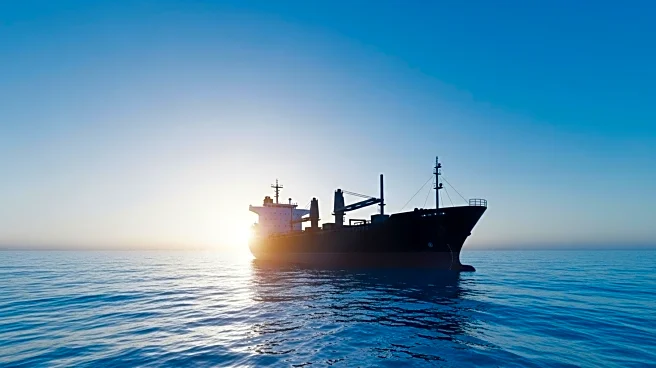What's Happening?
European Union countries are contemplating a 10-year postponement of EU-wide taxes on aviation and shipping fuels, according to a draft document. The proposal aims to advance long-delayed energy tax reforms initiated by the European Commission in 2021. These reforms are part of efforts to combat climate change by taxing CO2-emitting fuels used in flights and shipping within the EU. However, resistance from member states has led to the consideration of maintaining the current tax exemptions for these fuels. The draft suggests that only small aircraft and private pleasure craft may face taxes before the 10-year period ends. The exemption is intended to preserve the competitive position of EU companies. The proposal requires unanimous approval from all EU countries, making changes to tax policy challenging.
Why It's Important?
The potential delay in implementing taxes on aviation and shipping fuels has significant implications for the EU's climate goals. By maintaining tax exemptions, the EU risks slowing down its transition to cleaner energy sources. This decision could impact industries reliant on aviation and shipping, as well as countries with large shipping sectors or tourism industries. The delay may also affect the EU's ability to meet its climate targets, as tax changes are crucial for promoting cleaner fuels. The proposal highlights the difficulty of achieving consensus among EU member states on tax policy, which is essential for effective climate action.
What's Next?
EU negotiators are set to discuss the compromise proposal at a meeting in Brussels. The Danish EU presidency aims for countries to reach an agreement on the tax changes by November. The outcome of these discussions will determine whether the tax exemptions are extended and how the EU plans to address its climate goals. Stakeholders, including climate campaigners and industries affected by the tax changes, will likely react to the proposal and its implications for the EU's energy transition.











